#mrs. gaskell
Text
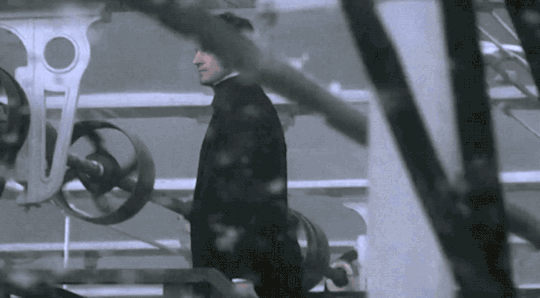


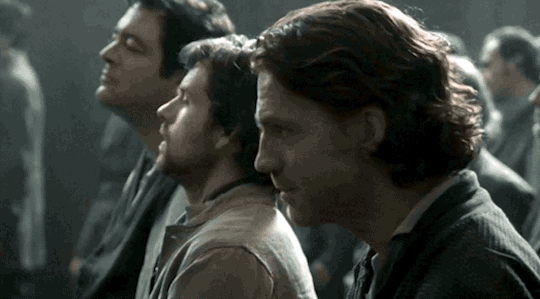

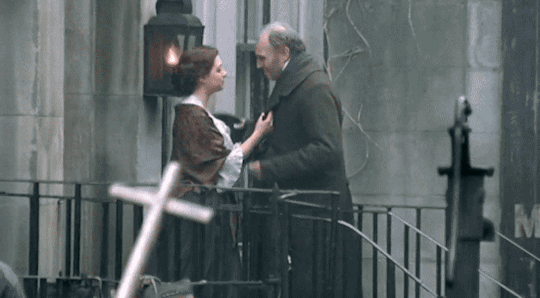
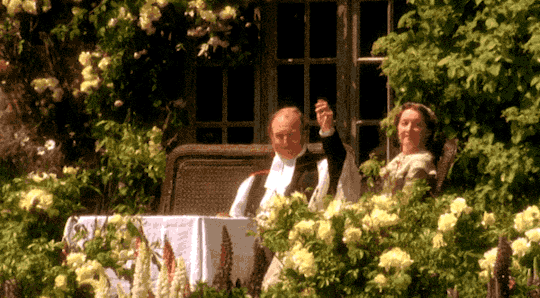
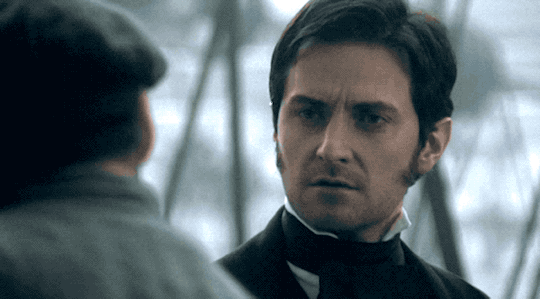

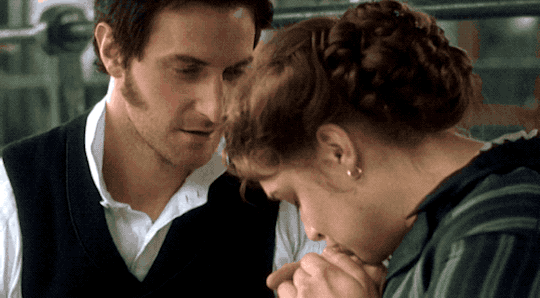


Period Drama Appreciation Week 2023 | Day 2: Favorite period drama TV | North & South (2004)
#perioddramaweek2023#north and south#richard armitage#daniela denby-ashe#brendan coyle#elizabeth gaskell#mrs. gaskell#gif#my edit
887 notes
·
View notes
Text
I finally started The Ballad of Songbirds and Snakes by Suzanne Collins and I am loving it. I am especially enjoying the contrast between how Snow and Katniss deal with hunger.
They are both constantly hungry, but Katniss is practical about it and has no shame in appearing starved. If she was in Snow's position, she would have torn out those roses and started growing something edible on the rooftop. She doesn't care at all if she's seen as crass for stuffing herself on the way to the Capital. But Snow is trying to maintain a veneer of gentility, and he thinks so hard about how to eat while trying not to appear hungry. He spends so much time analyzing social situations involving food and trying to manage his appearance within them.
He's much more similar to Peeta in that way than Katniss, Peeta is the one who can read a room and manipulate the crowds, Katniss can only be genuine. Snow comes off as a hero because he forces himself to do heroic acts, while Katniss does them naturally. I love that Collins was able to write such a similar and yet entirely different character in this prequel.
#It reminds me of Hyacinth Clare (Mrs. Gibson) in Wives & Daughters by Elizabeth Gaskell#the ballad of songbirds and snakes#katniss vs. snow#the hunger games
88 notes
·
View notes
Text
I firmly believe that if you put book!Mrs Thornton up against fairies she’d be able to outsmart them pretty easily. She’d be pissed as hell at having to deal with them but she’s a woman careful with her words.
She’s over here playing lawyer for a deathbed promise with Mrs Hale, those fae wouldn’t stand a chance.
#nina has thoughts#north and south#Mrs Thornton#I don’t love book Mrs Thornton she’s too proud and waaay too judgy of Margaret#but she’s a good character#Elizabeth Gaskell
71 notes
·
View notes
Text
I went into Ruth expecting a dreary read. How could a Victorian "fallen woman" story be anything other than dark and depressing? So I was shocked right from the beginning to find a sweet, gentle, romantic story. The dressmaker's apprentice who sits in the coldest, darkest part of the workroom because that's where there's a panel painted with flowers that remind her of her country home? How could I not adopt her as a favorite character? Ruth's innocent, romantic outlook on life gave us some beautiful descriptions of the scenery of both city and countryside, and my imagination went on overdrive to create very vivid images of the story. Even the love story, which we know is going to go very wrong, starts out sweet, with a kind, charming love interest who only shows flashes of just how wrong his character is going to go.
Even after Ruth's fall, the story is so gentle, putting Ruth among kind people who are willing to risk and sacrifice a lot to help her. And then the story gets almost too gentle--after some initial struggles with depression, Ruth resolves to bear her troubles patiently and work toward virtue, and her sweet, too-innocent character gets flattened out into someone who's just Good. Life just goes on, with things generally going well, and every potential turn toward drama results in someone deciding to be reasonable, which can make the story drag.
But, in a story like this, the lack of drama becomes the plot twist! It is refreshing to see characters who don't always jump to the worst conclusion or take the worst action, who pause and consider the whole story and act like decent human beings.
And in the places when the drama does kick in, it's good drama. Painful drama. It's also (especially in the last section of the story) melodrama. There were sections of the book where I was rolling my eyes at the cookie-cutter Victorian path the story was taking--but then there'd be one line or one moment that would just stab me in the chest because of how beautifully specific it was to this story. Just enough to elevate it from something bland to something unique and fascinating.
I often had the thought that this book could be about a third of its length without losing anything--yet it should also be just as long as it was. If the story cut all its repetitive musings about Ruth's regret, and used that space to develop the side characters and and show the plot instead of telling us about it, it would be a much deeper story. I found myself wishing Gaskell had reworked this one later in her career--the way that North and South was a more skillful reworking of the issues explored in Mary Barton. In a way, she sort of did in Wives and Daughters, with the story of Molly the quiet innocent getting tangled up in the intrigues surrounding her headstrong, flirtatious stepsister Cynthia serving as a more layered, personality-flipped version of the story where headstrong, sheltered Jemima gets tangled in the story of quiet, sweet Ruth and her past romantic intrigues. (The doctor at the end of the story also feels like a proto-Mr. Gibson).
Yet I'm still fascinated by the themes specific to this story. Contrary to expectation, this "fallen woman" story isn't about sex, or gender, or how unfairly women are treated (though it does touch on that in the end). It's about sin. It's not questioning why Ruth's behavior is considered a sin or looking to dismantle the society saying that it's a sin. It comes from the Christian perspective of saying that sin is real and harms people--so how are we going to deal with that?
The story shows lots of people struggling with temptation, failing, and dealing with the consequences (or harming others with the consequences). Sin is always a case of either not caring enough to do the more difficult, good thing, or a case of "the ends justify the means", where people rationalize their bad behavior as something necessary in this specific case. It always leads to harm, but some people--and some sins--suffer greater consequences in the eyes of the world, whether or not they deserve it. I wish the story had developed and resolved this theme better in places, but the raw material there is fascinating food for thought.
This book is Gaskell at her preachiest, but also Gaskell at her kindest. It explores deep, difficult issues in a very loving way. As a story, there are ways it could be better, but I'm very glad I read it. Perhaps I'm making a point to be kinder to it because I know it's the type of story that today's readers tend to judge harshly. But amid my issues with the story, there are some lovely images, some great messages, and some wonderful characters that going to be living in my heart for a long time.
#elizabeth gaskell#ruth#(i should find out if there's a subtitle for this book because it'd be nice to have a less-generic tag for it)#this should have been like four separate posts#but i spent long enough rambling through this so i'm leaving it as is#as a book i'd say it just barely makes four stars#it's a story that i like better when i'm not reading#because there is a lot of food for thought#the story itself has a lot of great points when you're not trudging through the latest chapter of 'an entire year passed'#the imagination can distill it into the best parts and there's a lot that's vivid#also the pro-life thing!#how did i forget that?#the moment that mr. benson said 'you're confusing the sin with the consequences' i'm like 'slap that on a pro-life sticker!#the fact that the baby is always treated as a good!#that alone is worth the price of admission
42 notes
·
View notes
Text




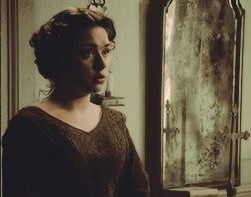
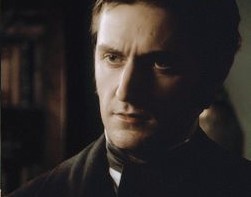

TWO ARE FILLED WITH INSULTS AND HOW CAN YOU NOT ACCEPT IT...
ONE OF THEM BOILS DOWN TO 6000 YEARS OF PINING AND STAY WITH ME
ONE OF THEM COMES DOWN TO RUNNING AWAY AND STARTING NEW.
BUT IT STILL FEELS THE SAME. NOW I HAVE ONLY EMPTINESS.
WHY IS HEARTBREAK AND SECOND CHANCE EVEN A GENRE???
#ineffable husbands#aziraphale#crowley#good omens#good omens season 2#good omens season two#our flag means death#stede bonnet#ed x stede#edward teach#north and south#pride and prejudice#mr darcy#elizabeth x darcy#maragareth hale#john thornton#margaret hale x john thornton#elizabeth gaskell#niel gaiman#terry pratchett
86 notes
·
View notes
Text

september 13, '22: margaret hale. 🤌❤️🥺😤
#northandsouth#reading#studyblr#books#literature#study notes#english literature#classic literature#elizabeth gaskell#north and south#margaret hale#mr thornton#novel#john thornton#studyspo#studyspiration#light academia#books and literature#studying#study motivation#studyinspo#art of annotating#annotations#annotating books
522 notes
·
View notes
Text
Rereading North and South and Dying because these two idiots share a single brain cell and don't realise that they're practically the same person
Thornton after the first proposal:

Margaret after she finds out he knows she lied about being at the station:

Like, literally they think the exact same thing about each other within the space of a few months and that thing is "oh yea? Well I'm gonna keep caring about you whether you like it or not!"
117 notes
·
View notes
Text
really, I’m just…crying over North and South rn
John Thornton is such a wonderfully imperfect character. He’s bad tempered and prideful and jealous. He thinks and speaks harshly of those less fortunate than them, and is the worst sort of board-room capitalist, calmly and reasonably propounding cold explanations for why giving a starving striker food makes them worse off in the end.
And yet—and yet—
Throughout the whole novel his harsh words are belied by kindness after kindness. From convincing the owner to repaper the Hales’ new home, to his hand picked fruit baskets for Mrs. Hale, to the hour of tender companionship he gave to Mr. Hale in his grief—as the narrator puts it, he “had tenderness in his heart—‘a soft place,’ as Nicholas Higgins called it; but he had some pride in concealing it; he kept it very sacred and safe, and was jealous of every circumstance that tried to gain admission.”
It’s this kindness that wins Margaret over in the end, but where he won me over was the gorgeous sequence with Higgins in the second half of the novel. Such a perfect blend of his faults and virtues. In his bad temper and his pride, he brutally rejects Higgins, only to change his mind. But what really gets me is that it’s not finding out that Margaret told Higgins to ask him that convinces him! If anything, his pride tempts him to reverse yet again.
No—“it was the five hours of waiting that struck Mr. Thornton” that convinced him to consider Higgins more thoroughly—and his character, “because it was right.”
Margaret is instrumental in her own way, as an outsider breaking down the barriers between class and wealth and privilege, but in the end, it’s Higgins and Thornton themselves who learn to respect each other:
“Yo’ve called me impudent, and a liar, and mischief-maker, and yo’ might have said wi’ some truth, as I were now and then given to drink. An’ I ha’ called you a tyrant, an’ an oud bull-dog, and a hard, cruel master; that’s where it stands. But for th’ childer. Measter, do yo’ think we can e’er get on together?”
“Well!” said Mr. Thornton, half-laughing, “it was not my proposal that we should go together. But there’s one comfort, on your own showing. We neither of us can think much worse of the other than we do now.”
#this scene is my favorite#but let us not forget also the sheer COMEDY of timing here#margaret: I’m sorry I asked you to go to Mr. Thornton. I’m very disappointed in him.#mr Thornton: *is right behind her*#margaret: *surprised pikachu*#anyway#north and south#teaching things#english literature#elizabeth gaskell#my two biggest gripes with the bbc serial are the removal of this comedy#and also the travesty that is the train station
250 notes
·
View notes
Text
there's just something about Mr Hale in North and South that upsets me so much! there are other characters in Elizabeth Gaskell's work that treat people worse than he does but something about his actions and character in particular truly set something off in me.
i understand having a crisis of faith and therefore finding yourself unable to continue in the church, but the fact he keeps it a secret the whole time that he is wrestling with this from his beloved wife angers me. in leaving the church their family lose their income and their home and he makes this decision entirely independently without consulting either his wife or his daughter who depend on him entirely.
he knows this decision will break his already depressed wife, but he's unable to actually face the consequences of his actions. so he asks his teenage daughter whose life is also getting upended to tell her mother about his own decisions. he's made a decision to change their lives for the worse and can't even face his own wife about it!
i think in media the characters we have the most intense feelings of hatred towards are often the more mundane ones because they're closer to our lives. we might not have any personal experience with mass murderers or someone who wants to destroy the universe but we probably have met someone who says cruel things or refuses to face their actions head on.
i just really struggle with Mr Hale. hes both pathetic and genuinely destructive. in leaving the church he makes his family homeless and destitute and he's too cowardly to tell them.
unfortunately i hate him!!!!!
13 notes
·
View notes
Text

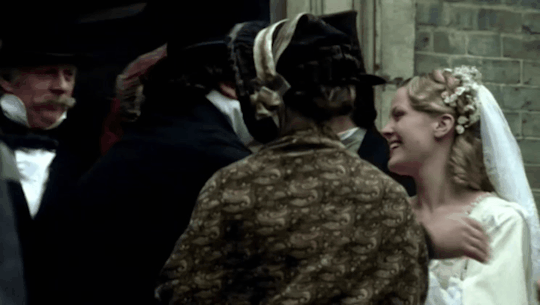
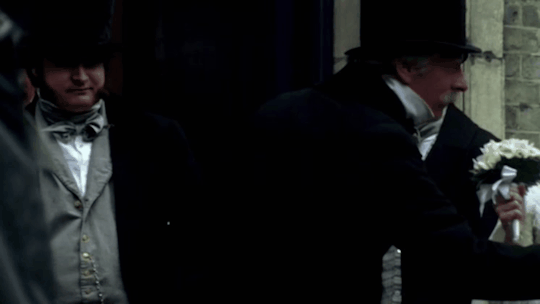
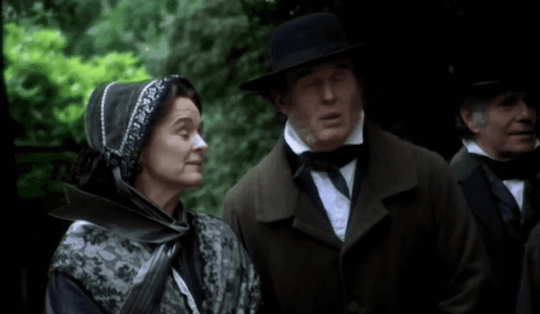
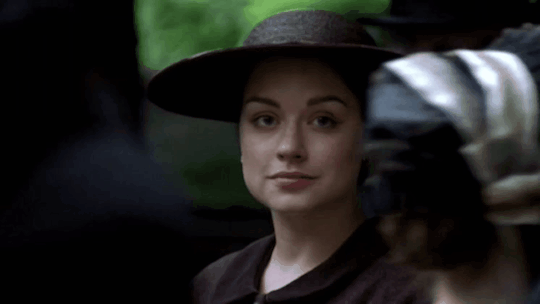

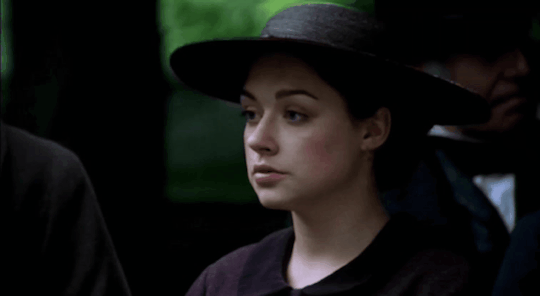
North and South (2004)
Episode 4.
dir. brian percival
#north and south 2004#elizabeth gaskell#margaret hale#john thornton#mrs thornton#mr hale#daniela denby ashe#richard armitage#sinéad cusack#tim pigott-smith#costume drama#period drama#miniseries#my gifs#mine
32 notes
·
View notes
Text
north and south by elizabeth gaskell:
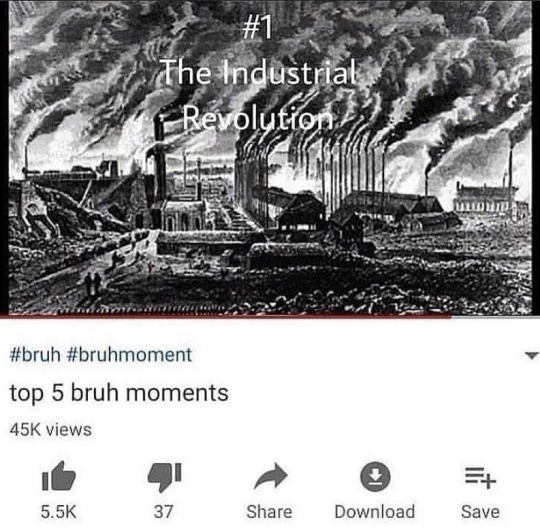
#north and south#elizabeth gaskell#i’m finally done reading it#i reaaaaally want to read different analyses so if u have any… 🤲#margaret is one of the best heroines ever cmon now!#and the character development of mr. thornton is satisfying to say the least!!#he’s funny too. he’s DOWN BAD since his first meeting with margaret im cruiyinfffff#so my boy marx what’s ur opinion 🎤🎤🎤#john thornton#margaret hale
42 notes
·
View notes
Text
My two favourite types of 19th century literature guys.
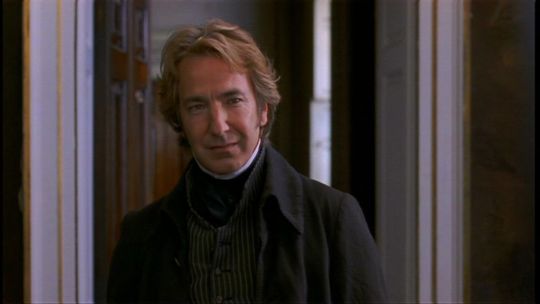

Litteral ray of sunshine. Deserves snuggles, gets struggles. Guaranteed will save your life. Husband material.
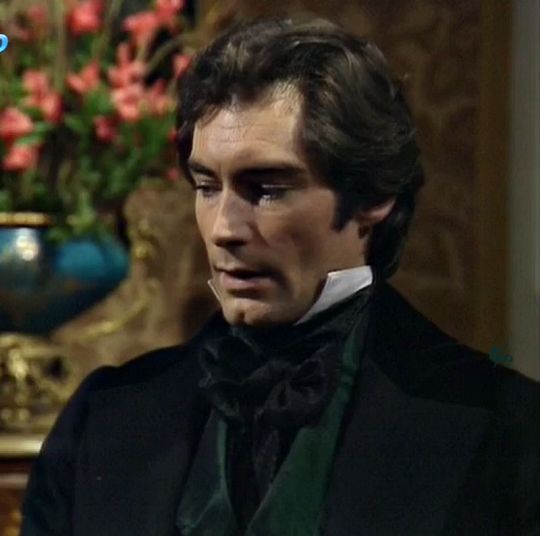

No used to human interaction. Hard shell, soft centre. Touch starved. Be patient, he's getting better at communicating.
#charlotte bronte#jane austen#elizabeth gaskell#colonel brandon#william buxton#edward rochester#mr darcy#alan rickman#tom hiddleston#timothy dalton#sam riley
32 notes
·
View notes
Text
We need to talk about the Compromise Trope
Tl;DR It makes zero flipping sense because men always face a smaller social cost than women. You cannot force a powerful man to do anything, much less get married for life to someone he hates. And you wouldn’t actually want this trope to be true, because even if a man is forced to marry, he can just abandon or mistreat his wife. (This is a really long post)
Discussion of sexual assault and spousal abuse.
For those who don’t know, this is an extremely common trope in Jane Austen Fan Fiction/Regency romance. I don’t know where it originated, though there are two types of situations in Jane Austen’s works which are close. The basic premise is this: a man and woman are caught alone in a dark room/kissing (with full consent on both sides or not)/just hugging sometimes and a whole bunch of people scream and they are forced to get married.
Often both sides are unhappy with this marriage but it must happen, so they deal with it. This is the most common form of “Forced Marriage Situation” in the JAFF that I have read and heard about.
The two situations that come close are Lydia and Wickham’s elopement and then behaviour that has engaged honour in Pride & Prejudice, Sense & Sensibility, Mansfield Park, and Persuasion. With Lydia and Wickham, that wasn’t an innocent kiss in a library, they were living together and most likely having sex for a few days/weeks before Darcy got the whole situation figured out. However, Darcy did not try to force a marriage first, he actually tries to get Lydia away. What we can assume from this is that Darcy recognizes that marriage to a dishonorable man is worse than the blow to Lydia’s (and her family’s) reputation or life’s happiness.
Situations where honour is engaged but no actual touching has happened (as far as we know), are Jane/Bingley, Marianne/Willoughby, and Louisa/Wentworth. In each of these situations, a man and a woman act in such a way that people begin to assume that they are engaged. Word is spread abroad, and the men all absent themselves from the situation in the hopes that rumours will die down. Lastly we have Henry Crawford/Maria Bertram, who do touch in the context of a play and who are acting very flirtatiously even though Maria is engaged. Henry also pointedly quits the scene. Two of these men (or their friends) are trying to exit an engagement situation fairly, two of them are just ghosting because they don’t care.
But here is the problem with the trope: while a man may be honour-bound to propose if he’s been raising expectations, no one can force him. Mrs. Bennet and Mrs. Jennings both complain to the world that Jane and Marianne have been ill-used, but nothing comes of it! Bingley comes back eventually, but not because he’s “compromised” Jane and feels bad about it. Willoughby gets married to Miss Grey anyways and he doesn’t suffer that much socially (Sir John forgives him before the novel ends). Also, Willoughby seduced and impregnated Eliza Williams, which is way past “compromise”, and while it’s not clear how widely known this is, he is not shunned socially for that indiscretion either.
This is the whole problem with the trope: powerful men can survive far greater social disgrace than women!!! This is probably partially because women are expected to be virgins and men are not, but also because of the imbalance in marriage prospects. I imagine that a woman with £30,000 pounds could weather a scandal far better than someone like Eliza Williams. Men like Henry Crawford and Darcy would be basically bulletproof, or at least that is how they are portrayed.
Oscar Wilde spends a lot of time on this imbalance of consequences (especially in A Woman of No Importance) and his conclusion is that men can basically get away with anything while women, and sometimes their children, bear the full brunt of social cost. We still see this today! It’s the woman who most often bears the consequences for getting pregnant as a teen, for example, and the largest blow to their future prospects.
In the only “compromise” I’ve read in a contemporary novel, Molly in Wives & Daughters (written in 1866) is caught giving Mr. Preston a letter and meeting with him clandestinely. What happens is nothing like the JAFF compromise trope. Molly’s reputation is trashed, but Mr. Preston is certainly not forced to marry her, people just talk about how they will probably marry. Molly is the one who bears almost the entire social cost, Mr. Preston isn’t even that worried about it until his employer gets involved. He is only a steward and could be held accountable by a higher up, people like Darcy and Crawford have no one who could do the same thing.
Another thing I see now which is just wild is Caroline trying to sneak in Darcy’s room at night. I don’t know how that is supposed to make a “compromise” since there are no witnesses, but also, that is incredibly dumb. A man as powerful as Darcy could have full on sex with a woman and deny it and probably face almost no backlash. Especially since Caroline would have no proof. I mean she can’t get a DNA test in this era and once she admits she’s had sex it could have been with a footman.
And you say, but Darcy is honourable? Sure, but this woman threw herself at him without consent! I am sure he wouldn’t have sex with Caroline without marrying her, but if she started kissing him and then people demanded they marry? It would be perfectly moral for him to throw her under the bus. And then Caroline’s reputation is destroyed and she gains nothing.
The fact is, if “compromise” was a real thing, it would be gamed. Humans will take any loophole and widen it until you can drive a truck through it. All of the nobility would be married by women throwing themselves at them, here, I wrote a farce about it.
If anything, the “compromise” trope is a fantasy where men are actually held accountable for violating women. Which seems like it would be nice, but considering that some women, especially Caroline, weaponize “compromise”, you start to border on some disturbing territory. Like the idea that women who accuse famous people of rape are just doing it for attention/wealth. And that is not great! That is something we also still struggle with today.
The only way “compromise” works as it is presented is if someone more powerful than the man involved forces him to marry. So for example, a father threatens to cut off his son’s allowance or disinherit him, like Mrs. Smith in Sense & Sensibility. However, even married a man isn’t “trapped”, he can just leave his wife behind and fuck off to Italy. Which is literally the plot of All's Well That Ends Well by William Shakespeare, in which the king forces a man to marry. This happens in Jane Austen too! Wickham just goes to London and Bath to enjoy himself and leaves Lydia with her family. Or if you’d like real world examples: Percy Shelley and Lord Byron. Also Jane Eyre now that I think about it...
But that’s not even the worst that could happen! In Mrs. Hubback’s The Younger Sister, (a completion of the novel fragment The Watsons by Jane Austen) which was written in 1850, we have this chilling exchange about a man forced to marry:
"Ah, I am glad I have brought you to your senses, at last; now consider, if we could do as Emma advises, and persuade this Mr. Musgrove to marry, as he ought, there would be an end of all trouble in the affair."
"To you, perhaps, but not to Miss Margaret; I dare say her amiable husband would beat her every day."
This situation was a bit different, they were suing for breach of contract because Mr. Musgrove proposed to Margaret and then pretended he hadn’t. Two women overheard the proposal and would have been able to testify in court against Mr. Musgrove. This was a real thing and could either result in restitution payments or marriage. However, you couldn’t sue for breach of contract over a kiss or a “compromise”, you needed proof of engagement. The real cases I have seen involved publicly known engagements, or letters and tokens of affection (think Lucy Steele in Sense & Sensibility) So again, not “compromise.”
The point though is that a man being forced to marry a woman could abuse her without much repercussion. In JAFF/Historical romance it always works out, but in real life I can see someone being pretty resentful that they were forced to get married and taking it out on the other party.
Also, the entire concept of a man trapped in an engagement and unable to get out because of their reputation/honour is kind of laughable because that’s why breach of contract laws exist! And women, who were technically “allowed” to back out, faced pressure to marry:
“But after a certain time—after the world suspects that two people are engaged to each other, it is scarcely possible for the woman to recede: when they come within a certain distance, they are pressed to unite, by the irresistible force of external circumstances. A woman is too often reduced to this dilemma: either she must marry a man she does not love, or she must be blamed by the world—either she must sacrifice a portion of her reputation, or the whole of her happiness.” (Belinda Ch 18, Maria Edgeworth)
So again, the social burden is carried by women
(Brief note about Edward Ferrars, he is trying to honour his promise to Lucy Steele and is “trapped” in an engagement, but he made that proposal of his own free will. His family would clearly have supported him in a breach of promise suit so he could marry Miss Morton. Lucy only has a hold on Edward because he’s too honourable to jilt her.)
Lastly, duels. I know almost nothing about duels but they just sound profoundly stupid to me. The only duel we see in Jane Austen is between Colonel Brandon and Willoughby, they are both unwounded and go home quietly. I don’t know what duels are supposed to solve, if Colonel Brandon had killed Willoughby he probably would have gone to jail/been hung (I don’t know if he’s rich enough to get away with it). So if he wins, Eliza is screwed, if he loses, Eliza is screwed, there is really no good outcome.
Mrs. Bennet wants Mr. Bennet to fight Wickham, but to what end? If Mr. Bennet killed Wickham, then Lydia isn’t un-ruined? So what is the point? I guess maybe the man agrees to marry your daughter rather than face death? It just seems like pointless drama to me. I don’t think I’ve ever heard of a duel with a good outcome, illuminate me in the comments/reblogs if you have.
Here is what I imagine is a more realistic scene of “compromise”: A man and woman are making out, some people burst into the library! Social pressure mounts for the couple to marry, but the guy isn’t interested. He goes to Italy for fun, leaving the girl to bear the full brunt of slut shaming and reputation damage.
Five years later, the man returns and is invited back into society. The girl is unmarried and unmarriageable, perhaps banished by her family to some cottage. Or she stuck it out and hoped people would forgive a youthful lapse of propriety, was she rich and pretty enough to get over the stigma? One can only hope.
Now specifically in Pride & Prejudice variations:
There are some cases where Darcy doesn’t like Elizabeth and is mad that he has to marry her. I just don’t think those would happen. After all, he encourages Bingley to leave Jane while there is still wiggle room, I think he’d just leave and hope for the best. He might even pay a breach of contract fine, after all, if he marries a woman he hates or distrusts, that’s the rest of his life and the reputation of Pemberley forever. Paying a fine and waiting for people to forget would hardly hurt him. And he probably wouldn’t think it was morally wrong if he suspected that Elizabeth did it on purpose to try and trap him.
There are other situations where Darcy is happy to marry Elizabeth but she hates him. These may also not result in marriage because Elizabeth is pretty big on not marrying people she does not love for social gain. I mean especially a man who just sexually assaulted her! If she thinks as poorly of him as she does canonically at Hunsford, I can’t see her saying yes. After all, now not only is Darcy someone she dislikes, he just proved he isn’t trustworthy or capable of self control.
Also, there are way too many variations where despite hating Darcy, Elizabeth is totally into the kiss. Which is so weird to me! If someone I hated kissed me they would be slapped! I doubt people are going to be screaming for Elizabeth to marry someone who assaulted her, they’d probably be angry at Darcy.
Lastly, Caroline Bingley. She is trying to compromise Darcy but sometimes ends up in a compromise marriage herself. Now she is actually rich and has a very caring brother. I cannot see her doing something like actually marrying Wickham or Mr. Collins. She could probably survive the reputation damage because of her large fortune or live on her dowry. After all, Darcy has told her Wickham can’t be trusted. It would be dangerous for her to agree to marry him.
Basically, I think any compromise situation in Pride & Prejudice is out of character. If one really wants Darcy and Elizabeth married pre-understanding and reformation arc, I would suggest placing Elizabeth in reduced financial circumstances, like Mr. Bennet dying. Otherwise, you need to significantly change the characters of both Elizabeth and Darcy.
#wives and daughters#elizabeth gaskell#The Younger Sister#mrs. hubback#oscar wilde#compromise trope#historical romance#jane austen fan fiction#JAFF#pride and prejudice variations#pride and prejudice#jane austen#long post#and kind of rambling#I hope I made my point#a woman of no importance
111 notes
·
View notes
Text
I believe John Thornton of North and South (spoiler alert) is the most beautifully masculine character ever written in English literature.
Why? Here's why (caution: love ahead, may fall in)
As everyone expects him to be, he seems to be - at first- the hard, icy arrogant businessman indifferent to other's feelings and situations more importantly those below him.
Surprisingly he is damn soft hearty (like the paws of a kitten) who loves his hard tiring life of Milton (a dirty city) and *is* considerate of his workers. He meets Margaret Hale and instantly has a crush on her. He's like, 'shut up, I don't . I am NOT feeling anything like that.' But his mother knows better.
He sees her at the dinner (ahem, organize it for the sole purpose). And gawwdd, he has to stop staring at her, so he ignores her but knows where she is all the time. He flashes his rare smiles knowing she's watching him. Before anything, he is in love with her, despite knowing she's too proud to love him back.
He accepts his love for her when she throws herself in the face of danger to protect him (he's like girl!! you're badass!!) . Now there's no going back. He's grateful for her and truly appreciates her presence in his life.
Without beating around the bush, he goes and confesses (everything. Also the fact that he's never been in love and you made me). Of course she rejected, cuz she's a proud bitch. But you know what he says? This:
"Now I love and I will love. But do not be afraid of too much expression on my part."
OMG LIKE MANNN!!!
He goes away and she catches hints of tears in his eyes. Of course he cried. He did, he went to mamma and when she asks what's up? He crys on her shoulder. A GROWN MAN WHO'S RICH SUCCESSFUL AND HANDSOME CRIES ON HIS MOTHER'S SHOULDER BECAUSE THE LOVE OF HIS LIFE REJECTED HIM!!!!!
He still loves her, he promised he always will. Looks after her family, saves her from humiliation, does her father's funeral and keep in touch with her godfather to know if she's well. He also goes to her hometown to feel how she might have grown up.
The last scenes they finally get together, he presents her a pressed flower from her hometown know she terribly misses going there. Omgggg!!!!!!!! How can anyone write such a beautiful character?????
#dark academia#north and south#elizabeth gaskell#literature#jane austen#Mr. Thornton#mr. darcy#pride and predujice#jane eyre#charlotte bronte#Persuasion#english literature#book nerd#book boyfriend#books#Mr. Tinley#colonel brandon#Mary barton#bookworm
328 notes
·
View notes
Text
not me rewatching North and South and losing my shit over Mr. Thornton all over again...
I cannot with this dude...

I just...
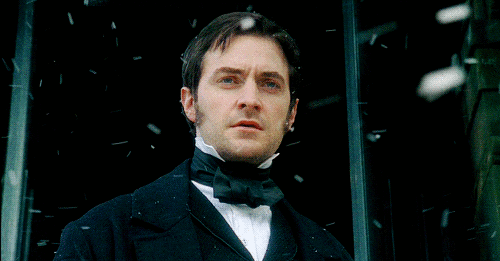
I will look back at you... Jesus Christ
#north and south#bbc north and south#elizabeth gaskell#mr. thornton#Margaret hale#richard armitage#daniela denby ashe#i am swooning#someone send help#and recommendations#because I need them
17 notes
·
View notes
Text
“one word more. you look as if you thought it tainted you to be loved by me.” teeth gnashing hair pulling screaming sobbing writhing
#MR THORNTONNNFNGN#i think about this scene so often#it’s so brutal#north and south#elizabeth gaskell#classic literature
32 notes
·
View notes